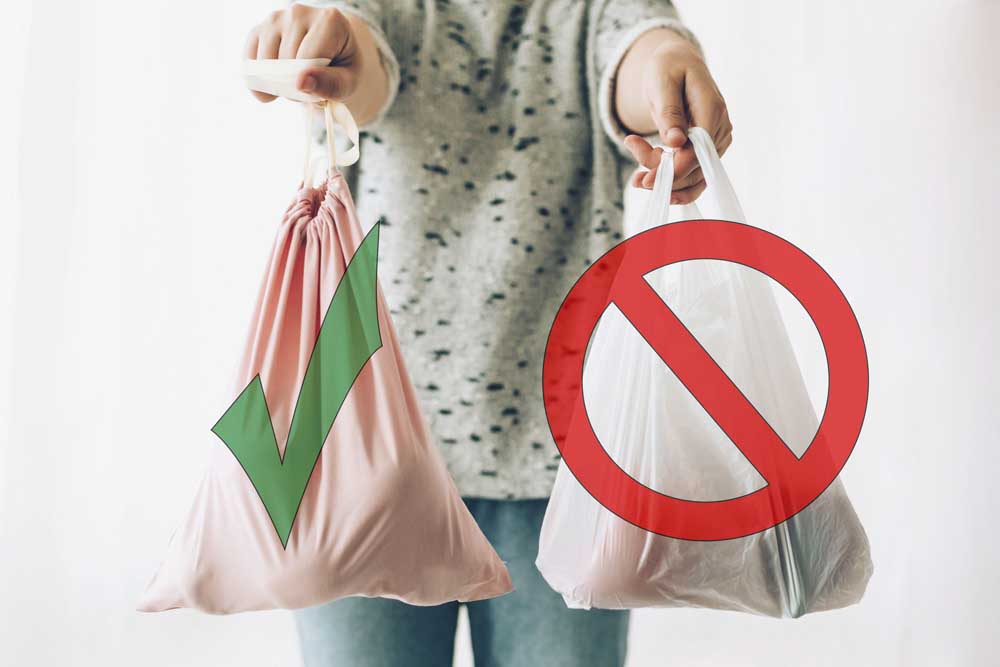Editorial: An obituary for the plastic bag
Published 9:30 pm Monday, December 30, 2019

- Ban single use plastic, stop sign. Choose plastic free. Zero Waste shopping concept. Woman holding in one hand groceries in reusable eco bag and in other vegetables in plastic polyethylene bag
The lightweight plastic shopping bag is essentially dead in Oregon. It was 54.
It may be fondly remembered by some as a convenient way to carry groceries. But it became a symbol of a throwaway society and often an unfortunate piece of trash drifting across the landscape or floating in the ocean.
In 1965, the one-piece polyethylene shopping bag was born. Polyethylene had been discovered in 1898. But inventor Sten Gustaf Thulin was the father of the modern plastic shopping bag. The bag was patented by a Swedish company and quickly swept through Europe as a replacement for paper and reusable bags. Companies began marketing it in the United States in the 1970s as an improvement. Safeway and Kroger began the switch to plastic bags in 1982.
Why plastic not paper? Cost. In 1985, for instance, 1,000 plastic bags cost $24. The same number of paper bags cost $30, according to The Atlantic. That price difference can quickly add up. Within 10 years, the plastic bag owned 80 % of the market.
But critics long said the real cost was miscalculated. They argued plastic bags piled up in the environment. Paper or reusable bags were better. That argument won in the Oregon Legislature. So now, retailers cannot use them effective Jan. 1. It does have survivors, including bags to gather up produce. So on Wednesday, don’t forget your reusable bag or retailers are required to charge you 5 cents for each bag.






